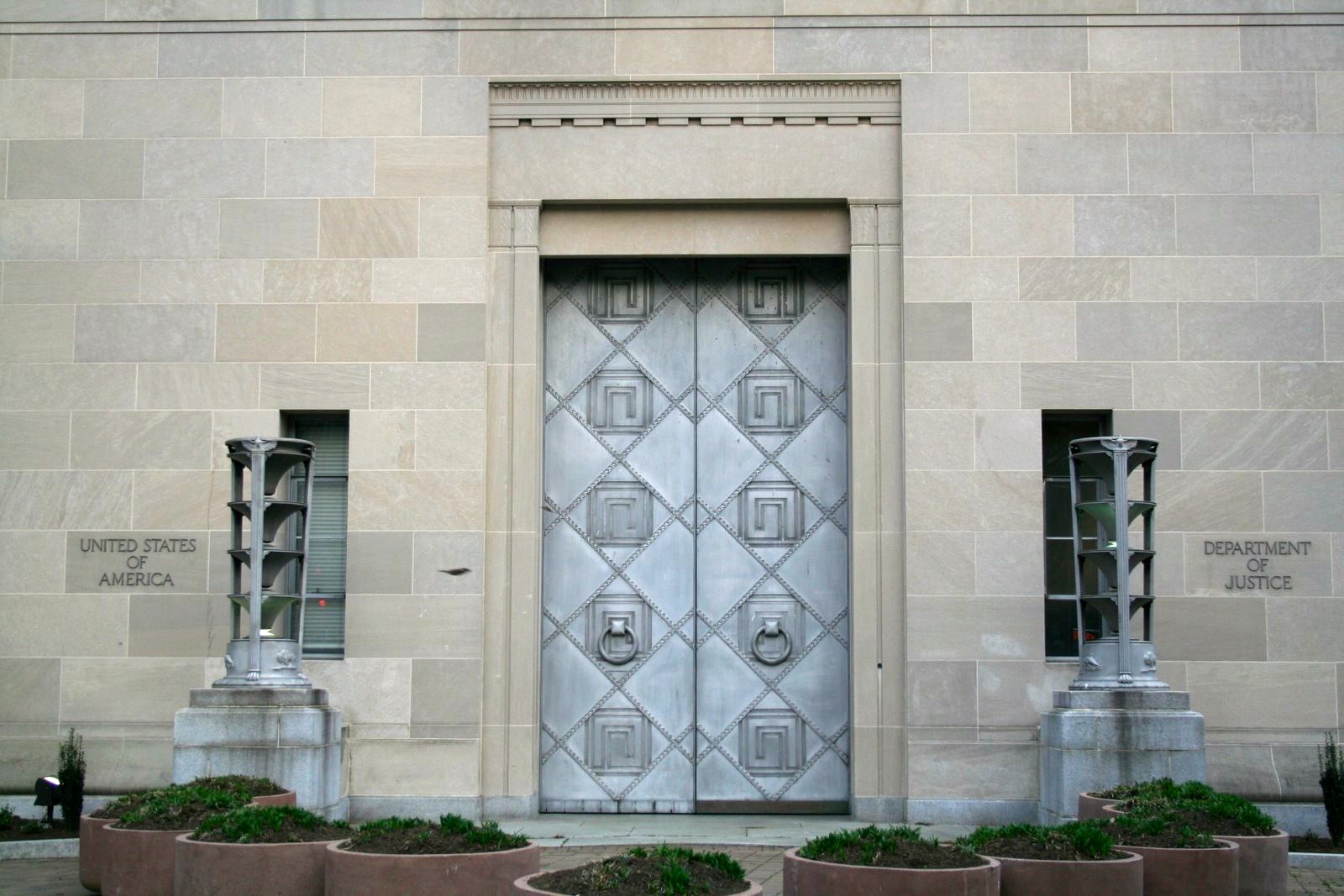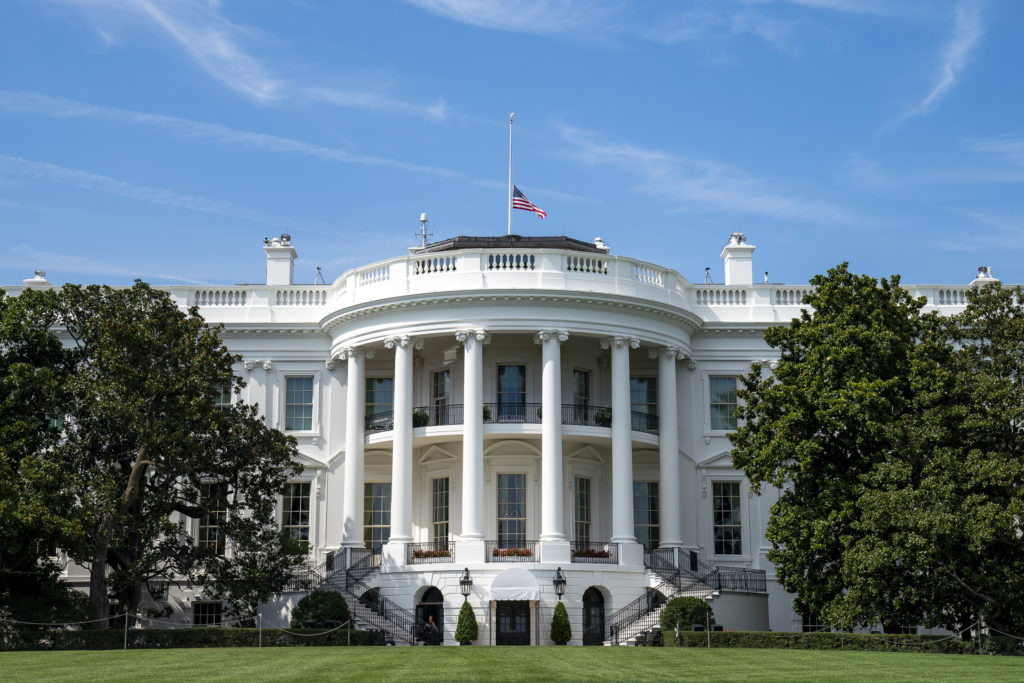Politics and Prosecutorial Discretion in the Trump Case
Calls for the Department of Justice to judge the political implications and consequences of a potential Trump prosecution are misplaced.

Published by The Lawfare Institute
in Cooperation With

In the wake of the Mar-a-Lago search, thoughtful commentators, notably Ross Douthat and Damon Linker, have sounded alarms about a potential criminal prosecution of Donald Trump. They express the worry that prosecution cannot end well. A large share of the Republican electorate would be convinced that an indictment was politically motivated—that it was a witch hunt, a brazen maneuver to take Trump off the competitive electoral playing field. If Trump were to run again and be elected, retribution would be sure to follow. And if Trump did not run, and, say, a candidate such as Gov. Ron DeSantis, R-Fla., were to win the White House instead, the newly inaugurated president might promptly pardon the 45th president and answer calls for revenge against the Democrats responsible for the merciless vendetta they had pursued against him.
To avert these dangers, Linker calls for putting aside thoughts of prosecution and focusing instead on what is necessary to let the political process do the work of determining what will become of Trump’s political career. Douthat argues that in the event that the department nonetheless brings charges, its case should be nothing short of a “slam dunk.” Only such a prosecution—one that is absolutely compelling on the merits and “easy to explain”—might limit or mitigate furious Republican blowback.
These concerns seem developed in a vacuum, without regard to an overall framework for thinking about presidential accountability under the law. The problem with the absence of any such framework is twofold. First, we are now in a “rule of law” dead-end: Executive branch law insulates presidents from accountability while in office, while “norms” and prudence generally counsel against prosecuting them after their term ends. And second, the question much contemporary commentary fails to address in these circumstances is what it would mean for prosecutorial discretion to be shaped to this degree by what are, in essence, political considerations.
In fairness, these considerations do overlap and sometimes seem to resemble “national” or “public interest” factors of the kind that prosecutors might well bring to bear in deciding whether to bring a case. There is, however, a critical difference to be drawn between two very different contexts: the prosecution of a sitting president and its impact on the functioning of the executive branch of government, and the prosecution of a former president who may seek the office again, and its impact on political candidacies, political campaigns, and feared cycles of political retribution.
So the Department of Justice might properly consider, as it did in the 2000 immunity opinion, how a prosecution might “compromise the President’s ability to fulfill his constitutionally contemplated leadership role with respect to foreign and domestic affairs” or how “the mental and physical burdens of assisting in the preparation of a defense for the various stages of the criminal proceedings ... might severely hamper the President’s performance of his official duties.” These burdens, the department concluded, “must be assessed in light of ... the ‘unique position in the constitutional scheme’ that this office occupies.” In effect, these are “constitutionalized national or public interest” concerns about the effect of criminal prosecution of an incapacitated executive.
Contrast this set of concerns with those raised by Linker in previewing the “nightmare” of a prosecution:
What if Mr. Trump declares another run for the presidency just as he’s indicted and treats the trial as a circus illustrating the power of the Washington swamp and the need to put Republicans back in charge to drain it? It would be a risible claim, but potentially a politically effective one.
Note the reference to what might be “politically effective” in this response to an indictment. Should this sort of Trump strategy, and the likelihood of its success, figure into an attorney general’s judgment of whether prosecution is warranted? Or, as Linker writes, that Trump “might well continue this campaign even if convicted, possibly running for president from a jail cell,” and in this way “reviving an old American archetype: the folk-hero outlaw who takes on and seeks to take down the powerful in the name of the people”?
It is far from clear what in the background and experience of duly qualified attorney generals would equip them to weigh these kinds of considerations in making a prosecutorial judgment.
Moreover, the Justice Department’s principles of prosecution and policies cut in the other direction: that it should keep its distance from electoral politics. It is committed to “non-interference with elections,” which is defined by a disregard of the effects of a prosecutorial judgment on the electoral process. As an example, the department generally avoids as a norm or practice taking overt investigative steps that could potentially if not foreseeably affect voter choice in the period immediately prior to an election, roughly 60 to 90 days before.
The department’s policies also restrict concern with the political impact of its investigations and prosecutorial deliberations in cases “involving an extremely popular political figure” where public reaction might raise the question of whether a jury would convict. In such a case, despite a negative assessment of the likelihood of a guilty verdict (based on factors extraneous to an objective view of the law and the facts), the prosecutor may properly conclude that it is necessary and appropriate to commence or recommend prosecution and allow the criminal process to operate in accordance with [department prosecution] principles.”
This same principle would logically operate in reverse: that the department not take into account that the political figure was extremely unpopular, at least with some sizable share of the electorate, and that the jury would be sure to convict. And in a communication to Congress during the Obama administration, confirming that an investigation into the George W. Bush administration firing of U.S. attorneys was concluded without charges, the department distilled these principles into the proposition that that “principles of fairness and justice” required the department to eschew “undue sensitivity to politics.”
The department labors, then, under two limitations that do not leave room for the considerations urged by Douthat and Linker. It attempts to steer clear of “undue sensitivity to politics” in its actions and deliberations. This means that the attorney general and those involved in making prosecutorial judgment should not, as matters of institutional role, capacity, and accountability, build political or electoral assessments into the exercise of their discretion to proceed, or not to proceed, with a prosecution.
This question of “who decides” is also illuminated by comparing the current circumstances with another in which the issue of accountability under the law arises: a presidential pardon. One can disagree with Gerald Ford’s preemptive pardon of Richard Nixon in the Watergate affair, but Ford was exercising clemency authority committed to him by the Constitution and not a prosecutorial judgment. The pardon power plainly encompasses the considerations Ford cited, which ranged from bringing to a close the Watergate episode and the ugly passions it unleashed to the Christian mercy he believed he should show to a disgraced predecessor. All these cases fell squarely within the responsibilities of the decision-maker. The same cannot be said of the department placing heavy weight on its decision-making about the effects of a prosecution on the political strengths or weakness of a former president, now very much a private citizen, or on its predictable effects on our politics in both the short and long runs.
Of course, the political context of the case calls for some good judgment: that any charges involve matters of real consequence. No one is (or should be) seriously arguing that the department should bring any case it plausibly can just because the defendant would be Trump.
To accept that the case has to be one of consequence, such as one involving serious national security matters, is not the same as the very different standard skeptics of any prosecution have proposed: the case has to be a “slam dunk” and “easy to explain.”
The problem with this standard is twofold.
First, there is no accepted, realistic definition of a “slam dunk.” Douthat surmises that the documents case may be “more serious than just some notes to Kim Jong Un but that the potential incrimination falls short of Trump literally selling secrets.” In short, a range from the possibly most trivial to the most serious—from a memento of a bizarrely prized relationship with the North Korean dictator, to the gravest of betrayals of the country. But the “everything in between” could include very serious offenses that, for any number of reasons, no prosecutor would blithely characterize as a “slam dunk.”
Second, what in these times, awash in the production of alternative reality such as rampant election denialism, would be so convincing as alleged and “easy to explain” that it would overcome the mutually distrustful, bitter partisan divide? The case may be “easy to explain” in one sense and, in another, entirely unpersuasive to a large share of the public tuning into the vast channels of disinformation available to them. The disinformation specialists will have their own “easy-to-explain” reasons why the department’s explanation is a fraud. The suggestion that the FBI planted evidence at Mar-a-Lago, which Trump set into motion, is just the beginning.
In his remarks to the press about the Mar-a-Lago search, Attorney General Merrick Garland stated that he would proceed in this or any other case within the competence and authority of the department: “Upholding the rule of law means applying the law evenly, without fear or favor. ... All Americans are entitled to the evenhanded application of the law, to due process of the law, and to the presumption of innocence.” The president nominated and the Senate confirmed him in the belief that this would indeed be his view of the job. It is also the job that his professional credentials and experience qualify him to do.
Inviting or urging Garland to subordinate these principles to political judgments and conjectures takes him far outside this sphere of clear responsibility and competence. It weirdly achieves, if indirectly, the very politicization of law enforcement that Garland is committed to avoiding.
There is no denying that Trump’s legal problems present, in various ways, profound risks for our politics in the year or years ahead. But this is not only about Trump. Like any large question about the rule of law in a liberal democracy, our thoughts about presidential accountability under the law should be abstracted as much as possible from the immediate political controversy. We should be thinking about the right way to think about institutional responsibilities for the rule of law as it would affect any former president—a Trump, not just this Trump.
It would also be prudent to resist the temptation to get ahead of the evidence, most of which is not known and likely still in development. Douthat worries with some justification about “legal experts cobbling together complex theories out of fragmentary information, exciting Twitter speculation about espionage and treason, a ‘this time we’ve got him’ spirit unseen since the days of Robert Mueller devotional candles.” There are reasons to suspect, as I do, that Trump is in serious legal trouble and, sad to say, I would not be surprised if some of the darker suppositions about his conduct turn out to be true. But we don’t know because we don’t and cannot know. It is not helpful to the department and the broadest possible public credibility that he doubtless hopes to preserve that this or that legal violation is declared to be clear as day and the department must proceed accordingly, any more than the process is well-served by attacks on the FBI and suggestions that the attorney general is a political hack who cannot be trusted. It has been reasonably noted that while “there was much we didn’t know before this affidavit was unsealed[, t]here’s much we still don’t know now.” Benjamin Wittes’s call for calm in this respect—“So sit back, take deep breaths, and pour yourself another cup of tea. We’re going to be here for a while”—is well taken.
And a final note: Commentators who fear what, if he ever returns to the White House, Trump might do to advance his autocratic view of the presidency, have good reason to worry. But it is a problem that we could face with any like-minded aspirant to the office who, in the name of “populism,” is prepared to subvert institutions for personal or political purposes. That is all the more reason why it is a shame that reforms to protect against politicization of the law enforcement process, or to clarify the application of the obstruction statutes to the president, or to limit abuses of the pardon power, have stalled out.
We may—most likely will—look back on this inaction with deep regret.





